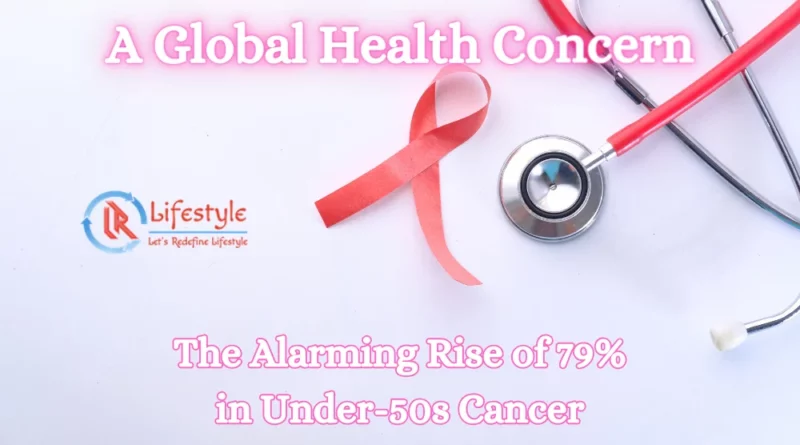The Alarming Rise of 79% in Under-50s Cancer: A Global Health Concern
Introduction
Cancer is a complex group of diseases characterized by the uncontrolled growth and spread of abnormal cells in the body. It can occur virtually anywhere in the body and may lead to the formation of tumors. Cancer is a leading cause of death worldwide, but early detection, advances in treatment, and lifestyle choices such as smoking cessation and a healthy diet can significantly reduce the risk and improve outcomes for those affected by this disease. Research into cancer continues to yield promising insights and therapies, offering hope for better prevention and treatment options in the future.
Shocking Revelation about Cancer
A startling revelation has emerged from a recent study published in the journal BMJ Oncology: Over the last 30 years, cases of cancer among individuals under the age of 50 have surged by a staggering 79 percent worldwide. This study, led by researchers from the University of Edinburgh in Scotland, sheds light on a concerning global health trend that challenges conventional wisdom about the types of cancers that typically afflict younger individuals.
A Disturbing Trend
Traditionally, cancer has been associated with older age groups, but the study’s findings indicate a disturbing shift. The research, which analyzed data from the Global Burden of Disease 2019 Study across 204 countries and regions, revealed a significant increase in cancer incidence among those aged 14 to 49, with an estimated annual percentage change from 1990 to 2019.
In 2019, there were 1.82 million new cancer diagnoses among individuals under 50, representing a staggering 79 percent increase compared to 1990. This trend has serious implications for global health and necessitates a closer examination of the contributing factors.
Changing Landscape of Early-Onset Cancers
The study identifies breast cancer as the most prevalent ‘early onset’ cancer among this age group in 2019. However, it’s not just breast cancer; windpipe and prostate cancers have exhibited the most rapid growth since 1990.
- Windpipe cancer showed an estimated annual percentage change of 2.28 percent.
- Prostate cancer closely followed with an estimated annual percentage change of 2.23 percent.
Conversely, there was a decline in early-onset liver cancer, decreasing by an estimated 2.88 percent each year.
Rising Mortality Rates Due to Cancer
The rise in cancer cases among the under-50s is accompanied by a significant increase in associated deaths. In 2019, over 1 million individuals under 50 succumbed to cancer, marking an alarming 28 percent increase from 1990.
Apart from breast cancer, other cancers with a high mortality rate and subsequent health complications included those of the windpipe, lung, stomach, and bowel. Notably, kidney and ovarian cancers exhibited the steepest increase in deaths.
Global Variances in Early-Onset Cancers
The prevalence of early-onset cancers in 2019 was particularly pronounced in North America, Australasia, and Western Europe. However, low to middle-income countries were not exempt from this concerning trend, with the highest death rates among the under-50s observed in Oceania, Eastern Europe, and Central Asia.
A stark gender-based difference emerged in low to middle-income countries, with women experiencing a disproportionately higher impact in terms of both deaths and subsequent health issues due to early-onset cancer.
Unraveling the Causes of Cancer
While genetic factors play a role, lifestyle factors are significant contributors to early-onset cancers. Diets rich in red meat and salt, combined with a lack of fruits and dairy, alcohol consumption, and tobacco use, are the primary risk factors associated with the most common cancers among the under-50s. Additional factors such as physical inactivity, excess weight, and high blood sugar also contribute to these alarming trends.
Conclusion
The rise of early-onset cancer presents a pressing global health concern. It challenges our understanding of the typical age groups affected by cancer and calls for urgent attention to lifestyle factors, diet, and environmental influences that may be contributing to this troubling trend. Further research is needed to fully comprehend the extent of these changes and to develop strategies for prevention and early intervention to protect the health and well-being of younger individuals worldwide.
Also Read:
Pirola Variant: Spreading Rapidly Across Borders – What You Need to Know and Do
For News related to entertainment visit our entertainment website:
https://www.glamworldtalks.com/



